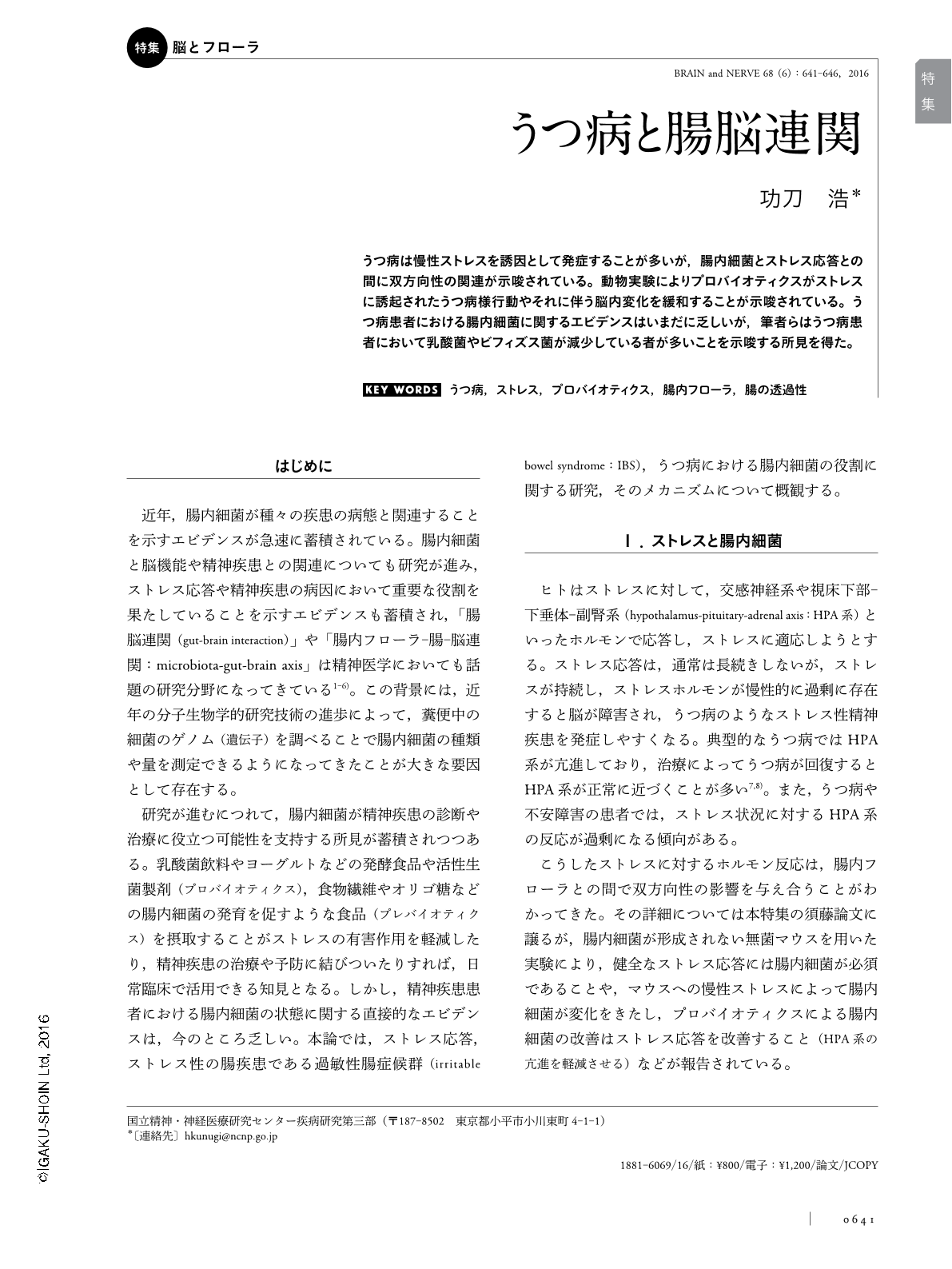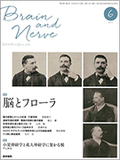Japanese
English
- 有料閲覧
- Abstract 文献概要
- 1ページ目 Look Inside
- 参考文献 Reference
うつ病は慢性ストレスを誘因として発症することが多いが,腸内細菌とストレス応答との間に双方向性の関連が示唆されている。動物実験によりプロバイオティクスがストレスに誘起されたうつ病様行動やそれに伴う脳内変化を緩和することが示唆されている。うつ病患者における腸内細菌に関するエビデンスはいまだに乏しいが,筆者らはうつ病患者において乳酸菌やビフィズス菌が減少している者が多いことを示唆する所見を得た。
Abstract
Depressive disorder is a stress-induced condition, which has been suggested to have bidirectional interactions with the gut microbiota. Probiotics such as Bifidobacterium and Lactobacillus have been suggested to mitigate stress response. Irritable bowel syndrome (IBS) is a typical phenotype of psychological distress manifested in the gastrointestinal system, and often develops in patients with depressive disorder. The altered gut microbiota and resultant inflammation in the gut play an important role in at least a portion of IBS. Animal models of depression have shown abnormalities in the gut such as increased gut permeability, and the probiotics ameliorate their chronic depression-like behaviors and altered stress responses. There have been only a few studies that have directly investigated the gut microbiota in patients with depression. We reported results suggesting that individuals with lower bacterial counts for Bifidobacterium and/or Lactobacillus are more common in patients with major depressive disorder than in healthy controls. the collectively use of gut microbiota in the diagnosis and treatment of depressive disorder seems to be a promising approach.

Copyright © 2016, Igaku-Shoin Ltd. All rights reserved.


